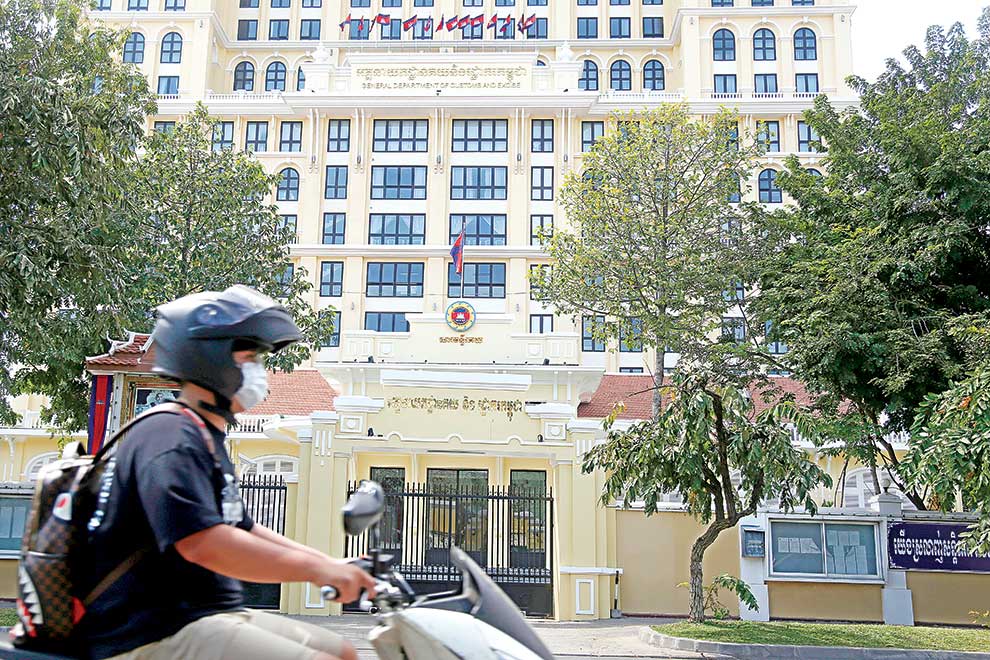
The General Department of Customs and Excise (GDCE) said it collected ‘nearly $820 million’ of taxes in the first four months of 2022. Heng Chivoan
The General Department of Customs and Excise of Cambodia (GDCE) reported revenue of “nearly $820 million” in the first four months of 2022, exceeding 31 per cent of the target of around $2.58 billion set for this year.
The GDCE earlier said it had collected 2.4286 trillion riel ($597.6 million) in taxes in the first quarter – up by 2.5 per cent year-on-year – which director-general Kun Nhem told a recent press conference was 23.17 per cent of the annual target. He also affirmed that customs revenues last month were $5 million more than in March.
The 2021 Law on Financial Management had set last year’s target for GDCE revenues at $2.363 billion, down from the 2020 goal of $2.91 billion due to the expected knock-on effects of the Covid-19 pandemic.
But even as the Kingdom recovers from the pandemic, the GDCE appears to be revising down its revenue forecast for this year, prompted in large part by the unfolding Ukraine conflict, which will undoubtedly continue to cause major economic shocks around the world, Nhem indicated, revealing that the department still plans to collect at least $2.4 billion and is making plans for 2023.
Although noting that the economy is dependent on the regional and global landscape, he stressed that the GDCE will nonetheless do what it can to implement this year’s annual action plan in its original form, complemented by the government’s medium-term revenue collection strategy.
Hong Vanak, director of International Economics at the Royal Academy of Cambodia, underscored the importance of customs as a source of revenue for the national budget, saying that a dip in collection may very well hamper economic development, especially when it comes to short-term responses to Covid-related impacts.
“Customs revenue has played an important role in supporting the current expenditure of the state. An increase in customs revenue signals improvements in the flow of goods.
“We expect that the government’s decision to reopen the country, coupled with a boost in exports underpinned by [trade] pacts, will trigger an upturn in customs revenue to match or surpass this year’s plan, so that state coffers have enough funds for next year’s spending,” he told The Post.











